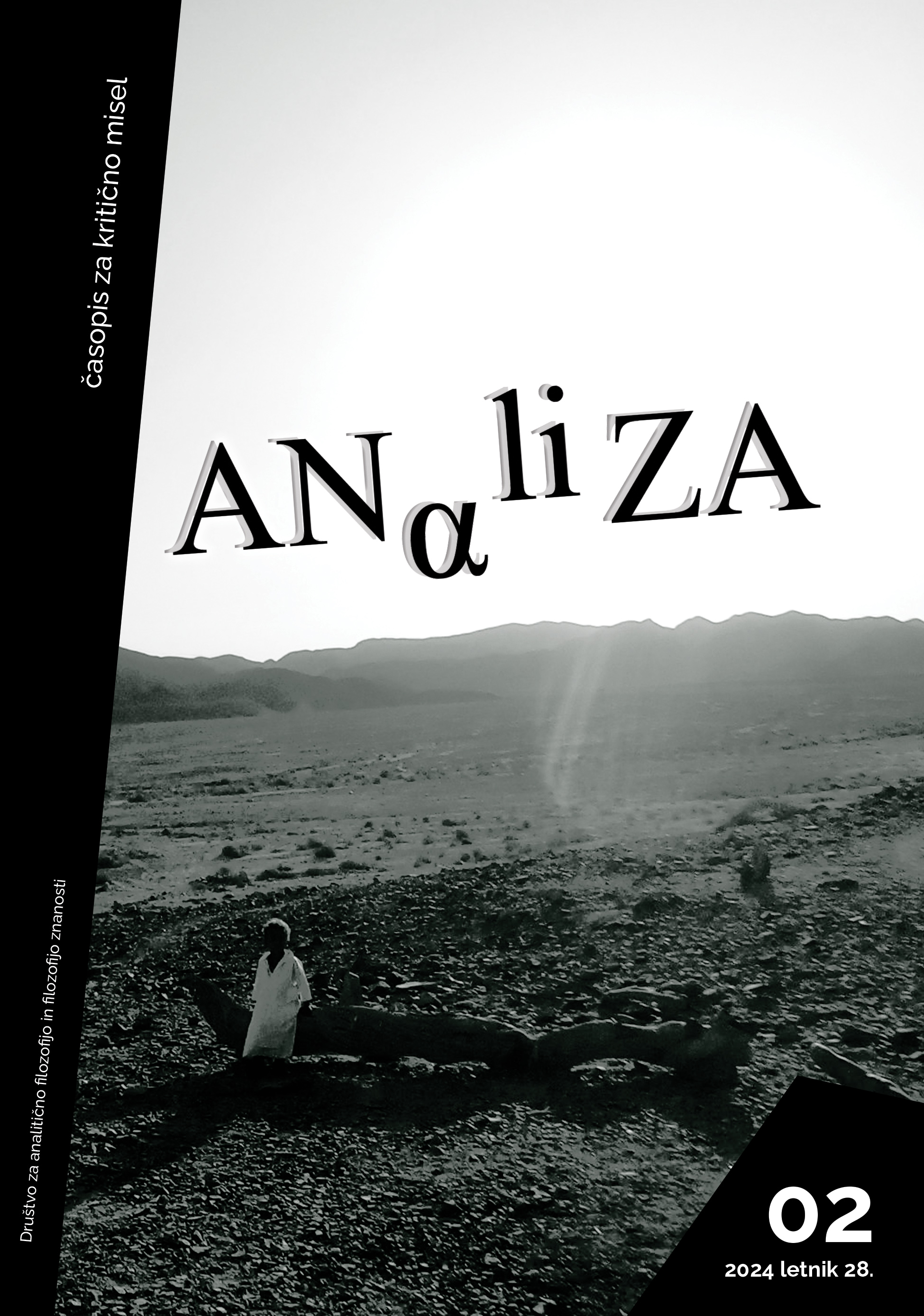Kaj lahko vemo
Fitchev argument in njegove posledice
Ključne besede:
verifikacionizem, antirealizem, Fitchev paradoks, klasična logika, neklasična logikaPovzetek
Članek, ki je motiviran na osnovi poglavja v Šusterjevi knjigi, obravnava vidik tako imenovanega Fitchevega argumenta (FA), ki predstavlja resen izziv za veri-fikacijsko teorijo. V nasprotju s Šusterjevim stališčem v celotnem prispevku za-sledujem stališče, da večina poskusov, ki nameravajo verifikacionizem ubraniti izpod primeža Fitchevega argumenta, vključno z Edgingtonovo teorijo, ne uspe. Kar zadeva poskuse omilitve posledic Fitchovega argumenta za verifikacionizem v okviru klasične logike (Eddington kot najpomembnejši predstavnik), se postav-ljam na stran njihovih kritikov (Williamson, Percival) in trdim, da jim njihova namera ni uspela. Kar zadeva poskuse blokiranja vpliva Fitchevega argumenta v okviru neklasičnih (intuicionističnih, relevantnih, dialetheističnih in tako naprej) logik, to počnejo z uvajanjem načel, ki razveljavljajo nekatera osnovna klasična pravila in principe, pri čemer običajno uvajajo trivialne svetove. V tem primeru je verifikacionistično načelo (kot tudi vsi sklepi, vključeni v Fitchev argument) prazno resnično, kar ni zadovoljivo. V vsakem primeru pa ni prepričljivih doka-zov, da bi bodisi klasični bodisi kateri koli od neklasičnih pristopov verifikacio-nistu lahko pomagal, da bi se rešil iz primeža FA.
Prenosi
